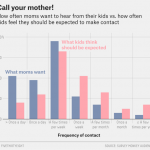Bit of housekeeping before you get to the rest of the takes. If you’re coming here through the blog carnival, perhaps you’d like to get caught up with the ongoing debate on gay marriage. A college friend of mine challenged me to answer the strongest arguments against gay marriage, and we’re working through them.
(And if you like that stuff, consider voting for this blog in the About Atheism awards?)
Ok, now that the housekeeping stuff is out of the way… ROBOT PACKMULE!!!!
This is a DARPA project and it looks incredible. It’s getting some new press attention because the dog that inspired the engineer just passed away.
Oh, I am so sorely tempted to make this a wholly robotics-focused Quick Takes. Via WebUrbanist, the depression-fighting robot baby.
As humans get older, they often become susceptible to depression. Other than drugs and counseling, what can be done for seniors in need of help? Giving them something to take care of might be the answer. The Babyloid robot, developed by researchers at Chukyo University in Japan, promises to keep older people feeling happy and fulfilled just by virtue of its adorable robot presence. Babyloid cries, laughs and sleeps like a human baby, letting older folks tend to its every need. Just 90 minutes a day with the sweet little robot has been shown to increase the moods of nursing home patients.
Ok, my scifi side is pleased, but my repressed trad thinks it’s a little ridiculous that we are cheering old people up with robot babies when actual babies exist in orphanages and daycares.
This robot baby doesn’t cheer anyone up. It’s meant to be used (with skin!) to replace human babies on TV and movie sets, but without its flesh suit, is firmly in the uncanny valley.
On to metaphorical robots! Andrea Kuszewski wrote a great essay for Discover Magazine on her behavioral therapy work with an autistic boy who referred to himself as a computer.
He would say things like “I need input” or “Answer not in the database” or simply “You have reached an error,” when he didn’t know the answer to a question. He truly did think like a computer at that point in time—he memorized questions, formulas, and the subsequent list of acceptable responses. He had developed some extensive social algorithms for human interactions, and when they failed, he went into a complete emotional meltdown.
My job was to change this. To make him less like a computer, to break him out of that rigid mindset. He operated purely on an input-output framework, and if a situation presented itself that wasn’t in the database of his brain, it was rejected, returning a 404 error.
In the course of therapy, David opened himself up to new ways of looking at problems and deriving solutions. When I asked him a question he had never been exposed to, it forced him to think about the content of my question itself, not just search the database of his brain for the correct response that he had memorized. When he failed to come up with an appropriate answer to a problem (which happened quite a bit initially), we discussed the reasons why it was wrong. Then, after a series of inappropriate attempts at a solution, he started to see the patterns that made up “possible correct responses” and the varying degrees of correctness, as well as the “always incorrect answers” and the “sometimes correct, sometimes incorrect, but depends on context”.
The word robot was coined in the play R.U.R. (WPA-era poster below)
The robots in this play were easily mistaken for human and served as a metaphor for our capacity to dehumanize other humans.
And speaking of that, I really recommend everyone read Adam Gopnik’s piece for The New Yorker on mass incarceration in America. Here’s a Dickens quote Gopnik cites after detailing the horrifying statistic that we are second only to the Russian gulag on percent of citizens locked up:
I believe that very few men are capable of estimating the immense amount of torture and agony which this dreadful punishment, prolonged for years, inflicts upon the sufferers. . . . I hold this slow and daily tampering with the mysteries of the brain, to be immeasurably worse than any torture of the body: and because its ghastly signs and tokens are not so palpable to the eye and sense of touch as scars upon the flesh; because its wounds are not upon the surface, and it extorts few cries that human ears can hear; therefore I the more denounce it, as a secret punishment which slumbering humanity is not roused up to stay.
For more Quick Takes, visit Conversion Diary!














